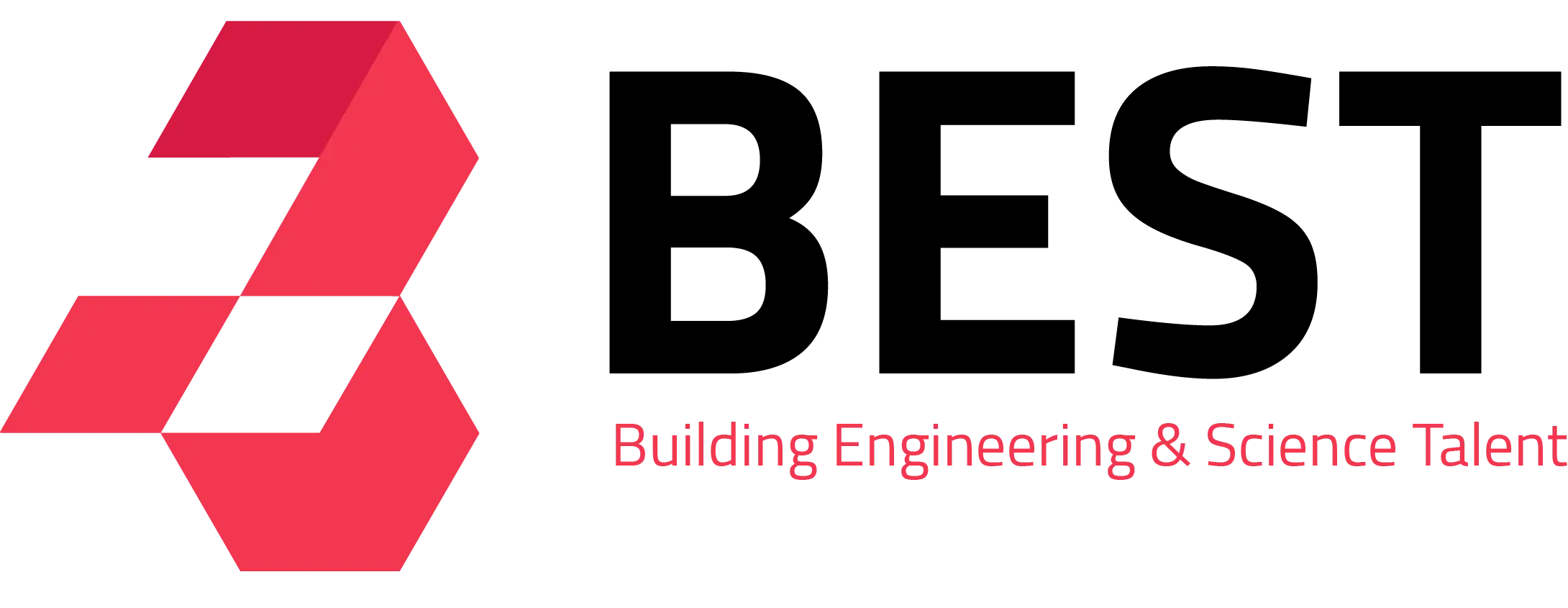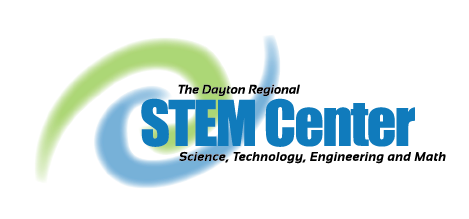current collaborative partners
DoD STEM and DSEC
DoD STEM seeks to attract, inspire, and develop exceptional STEM talent across the education continuum and advance the current DoD STEM workforce to meet future defense technological challenges. The Defense STEM Education Consortium is a partnership between DoD STEM and 15 national partners committed to increasing the capacity of STEM education among underrepresented groups.
RTI International (RTI)
RTI is an independent nonprofit research institute dedicated to improving the human condition by turning knowledge into practice. RTI practitioners combine scientific rigor and technical proficiency, to deliver reliable data, thorough analysis, and sustainable programs that help clients inform public policy and ground practice in evidence. RTI is the consortium lead, and provides overall leadership, management and guidance to the consortium.
American Institutes for Research (AIR)
AIR is one of the world's largest behavioral and social science research and evaluation organizations. AIR's mission is to conduct and apply the best behavioral and social science research and evaluation towards improving people's lives, with a special emphasis on the disadvantaged. Washington, DC-based AIR's DSEC role is to improve the availability, consistency and quality of data as well as generate new evidence for DoD STEM programs.
FIRST
FIRST is a global robotics community preparing K-12 students to be science and technology leaders and innovators by engaging them in exciting mentor-based programs that build STEM skills, inspire innovation, and foster well-rounded life capabilities including self-confidence, communication, and leadership. DoD STEM sponsors more than 1,000 FIRST teams for military-connected students each year. FIRST's role in the consortium is to continue to support and expand military-connected student teams.
MATHCOUNTS
MATHCOUNTS's mission is to engage US middle school students of all ability levels in math programs that build confidence and improve attitudes about math and problem solving. Nationwide MATHCOUNTS activities cover competitions, after-school clubs, and an annual video challenge that strive to make learning math fun. MATHCOUNTS role in DSEC is to expand club availability in areas close to DoD labs and military-connected students.
National Math & Science Initiative (NMSI)
NMSI works to expand access to challenging coursework and improve student achievement through proven programs that consistently produce measurable and lasting results. NMSI partners with schools and districts nationwide to provide extraordinary training, support and resources for teachers and students.
Dayton Regional STEM Center (DRSC)
The DRSC coordinates an established network of regional institutions and professionals that provide rich opportunities for STEM education by training and supporting educators, designing curriculum aligned to the workforce needs, training school leaders at the district and building level, and supporting schools and program models committed to STEM teaching and learning. DRSC serves as a hub location for building pathways into STEM careers in Dayton, OH area defense installations, including Wright-Patterson AFB.
Morgan State University's Center for Excellence in Mathematics and Science Education (CEMSE)
CEMSE was created in 1988 to enhance Morgan State's math and science offerings for Morgan State students and address how technology influences all aspects of society - from health and the environment to the nation's workforce and national defense. CEMSE's role in the consortium is to support collaborative activities between Morgan State students, the surrounding Baltimore community, and the numerous DoD installations in the greater Washington, DC/Baltimore area.
University of California, San Diego Center for Research on Educational Equity, Assessment & Teaching Excellence (UC San Diego CREATE)
UC San Diego CREATE works with campus colleagues and graduate/undergraduate students to leverage their work and energy to engage K-12 students in opportunities to learn. Some outreach programs also support community college students or teachers. USCD CREATE's role in the consortium is to build bridges between the DSEC partners, the DoD laboratories and its considerable education network in the greater San Diego, CA area.
National Center for Women & Information Technology (NCWIT)
NCWIT is the only national non-profit focused on women's participation in computing across the entire ecosystem, helping more than 1,100 organizations recruit, retain, and advance women from K-12 and higher education through industry and entrepreneurial careers by providing support, evidence, and action. For the consortium, NCWIT is focusing on expanding opportunities for girls to learn code in lab-adjacent communities.
Society for Science & the Public (Society)
Society is a champion for science, dedicated to expanding scientific literacy, effective STEM education and scientific research. In the Consortium, the Society focuses on middle school through a new teacher conference, additional student awards and outreach to military impacted students and schools to expand the reach of Science News for Students.
Teaching Institute for Excellence in STEM (TIES)
TIES works with school districts with the goal of ensuring that all young people complete their secondary and postsecondary education “STEM ready.” This vision is intentionally inclusive of all students and reflects educational inequities. TIES defines success not on whether students choose to pursue STEM careers, but that they have been provided high-value, relevant education that allows them to graduate with the skills and knowledge to make informed choices. Based in Cleveland Heights, OH, TIES's role in the consortium is to expand partnerships between numerous TIES ecosystem projects and DoD laboratories.
TGR Foundation, A Tiger Woods Charity (TGR)
TGRF's award-winning STEM curricula, college-access programs, digital platforms and educator professional development offers underrepresented students the resources and support needed to thrive in school and beyond. Based in Irvine, CA, TGRF's role in the consortium is to provide STEM teacher professional development and training films with a focus on underserved students.
Center for Gender Equity in Science and Technology (CGEST)
The Center for Gender Equity in Science and Technology (CGEST) in the School of Social Transformation at Arizona State University will run CompuGirls Cybersecurity, a week-long summer camp for underrepresented girls (e.g., Black, Latinx, Native American, military families) in grades eight through 12 who are interested in learning about cybersecurity, computer science, and information technology. Students will learn how technology can address community needs in a culturally relevant approach, receive mentorship from STEM industry leaders, and explore technology and STEM careers. Female undergraduate freshmen majoring in STEM fields will serve as peer mentors and residential and teaching assistants.
SAN DIEGO MIRAMAR COLLEGE (SDMC)
San Diego Miramar College (SDMC) prepares students by providing quality instruction and services that support and promote success, diversity, equity, and inclusion. Its innovative programs and partnerships facilitate degree and certificate completion and university transfers, provide workforce training, and/or prepare for career advancement. SDMC offers numerous degrees and certificates in biotechnology subject areas, which are in high demand among San Diego's vibrant high-tech community as well as the DoD's laboratories associated with the U.S. Navy. SDMC's program provides no-cost, for-credit classes during summer session to 32 students who will earn a Certificate of Achievement in Biotechnology. SDCC also offers 10 subsidized internships with the Biocom Institute, a life sciences industry association.
LEARNING UNDEFEATED
Learning Undefeated provides life-changing STEM experiences for high-needs communities by providing equitable access to education and inspiring students to imagine their own success. Through exciting K-12 programs, Learning Undefeated sparks student interest in biotechnology and related careers. Learning Undefeated's programs include six mobile laboratories, young science explorers summer camp, mentorship programs, college and career readiness, and student competitions, all with integrated technology components such as game-based learning and augmented reality. The consortium partnership provides meaningful, semimonthly educational experiences, at-home science resources for authentic laboratory investigations, engagement with DoD STEM professionals, and a group competition.
NATIONAL INVENTORS HALL OF FAME
The National Inventors Hall of Fame® (NIHF), based in North Canton, Ohio, was founded in 1973 in partnership with the U.S. Patent and Trademark Office to honor innovators with U.S. patents whose inventions have furthered the technological prowess of the nation. NIHF brings its fun, hands-on programs to more than 1,600 schools and districts each year so student creativity and excitement about discovery can bloom in a supportive atmosphere. For this effort, NIHF will introduce its Camp Invention® program to more than 1,000 students in locations close to DoD laboratories and facilities. Students attending the summer camp will meet real inventors during activities that build the innovation mindset, or skills and traits that empower children to create: collaboration, confidence, creative problem solving, design thinking, entrepreneurship, innovation, intellectual property, persistence and STEM.
PRINCE GEORGE'S COMMUNITY COLLEGE
Prince George’s Community College (PGCC) is an open-enrollment institution for students seeking a degree, career development or simply new life skills. PGCC aligns its programs and resources with student and community needs to enhance the economic vitality of the region. The college encourages and supports meaningful student engagement with the community as a means to strengthen the college’s foundation and boost the economy. PGCC’s role in the consortium is to partner with BSU to develop a STEM Student Learning Community that will connect STEM students from the two institutions and the surrounding high schools.
ROBO NATION
RoboNation was launched in 2009 to build a pathway of hands-on robotics programs and competitions for students from elementary school through post-graduate studies. More than 250,000 students participate in nine RoboNation competitions and programs each year. The DSEC-supported project will introduce RoboNation’s SeaPerch program, an underwater remotely operated vehicle (ROV) program, to three military-connected communities in Louisiana and Texas; and foster partnerships among the communities surrounding Fort Polk, Fort Hood and Joint Base San Antonio. SeaPerch teams design and build ROVs with an eye toward learning how to work together toward a common goal, building a community of peers and ultimately competing against other SeaPerch teams in local, regional and international competitions.
ROBOTICS EDUCATION
The Robotics Education & Competition (REC) Foundation, based in Greenville, Texas, develops robotics engineering programs for students with the goal of increasing overall student interest and involvement in STEM subject areas. With DSEC support, the REC Foundation will support schools in the Gulf Coast region of the United States (Alabama, Louisiana, Mississippi and Texas) as well as the mid-west region (Illinois, Kansas, Missouri) to field 110 teams and compete in the REC Foundation’s Aerial Drone Competition. The teams will progress through a program covering autonomous and driver skills, 3-D printing and computer-aided drawing, in addition to multiple coding platforms including Python, JavaScript, MATLAB and more. The program organizers will make a concerted effort to recruit female students with the goal of each team composition being at least 50% female — a demographic traditionally underrepresented in robotics. In addition to instruction in drone operation, students will learn about career paths available to those with robotics skills.
SINCLAIR COMMUNITY COLLEGE
Sinclair Community College (SCC) is a large, nationally recognized community college in Dayton, Ohio. An open-access institution, SCC serves 30,000 students annually and offers more than 300 degrees and certificate programs at five locations in Ohio. SCC has strong ties with major employers in the community through internship and registered apprenticeship programs. SCC’s role in the consortium is to develop the CSU-SCC STEM Academy (with partner Central State University) that offers clearly defined pathways and wraparound services to prepare middle and high school students to study STEM in college and pursue STEM careers.





















